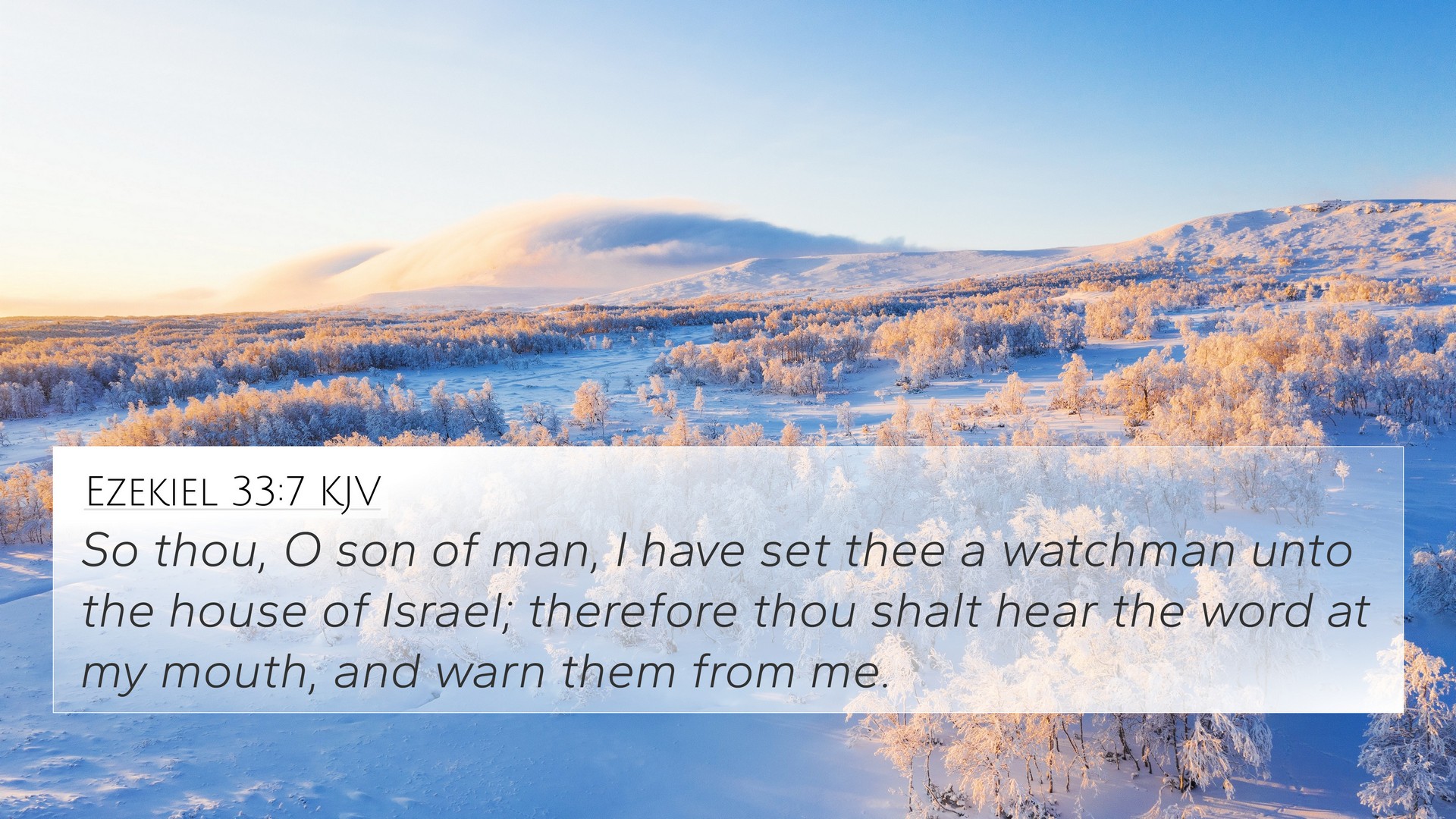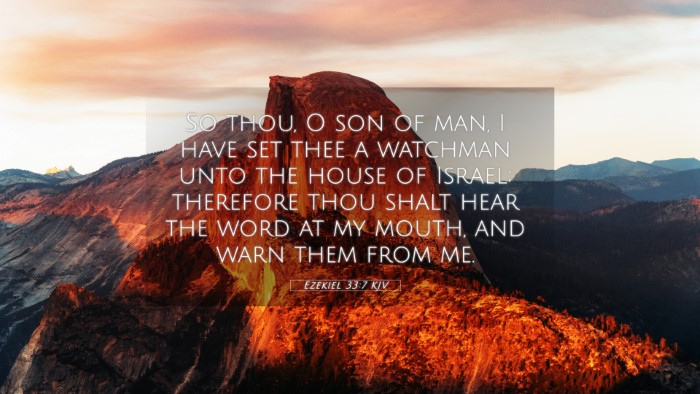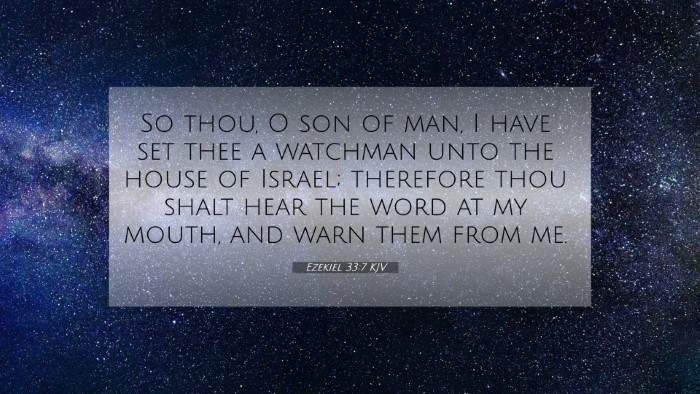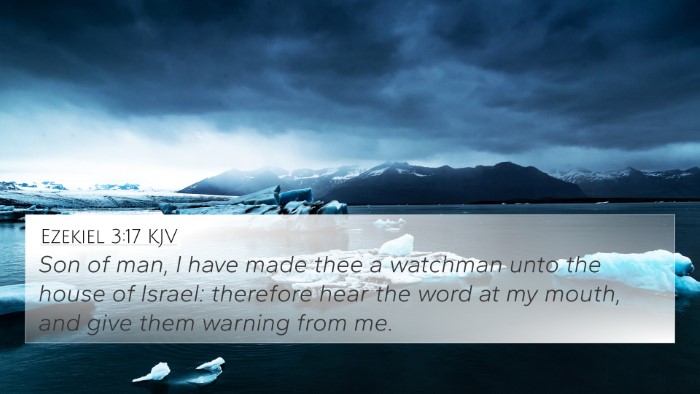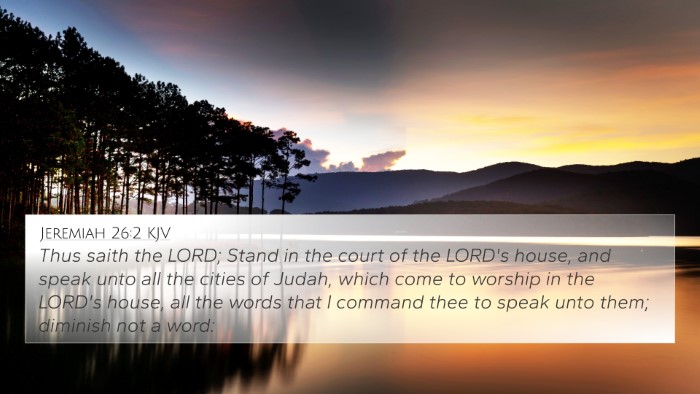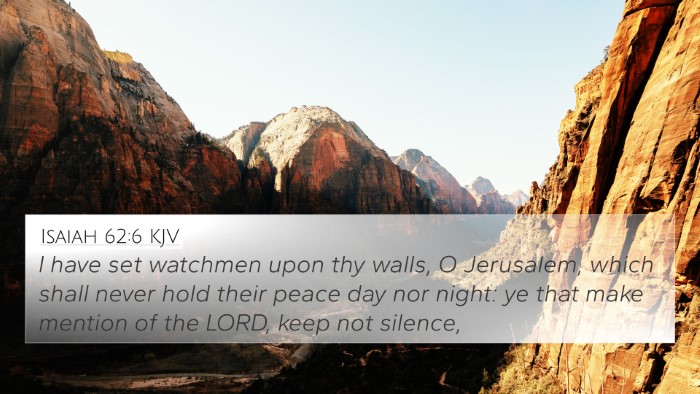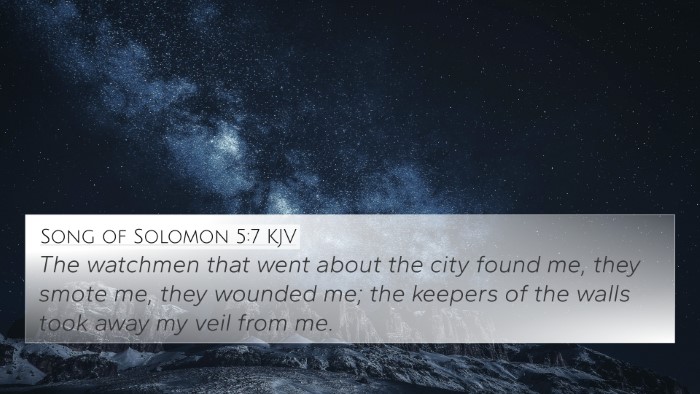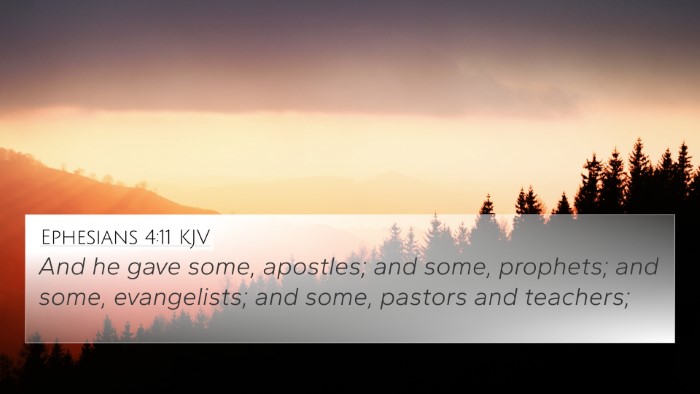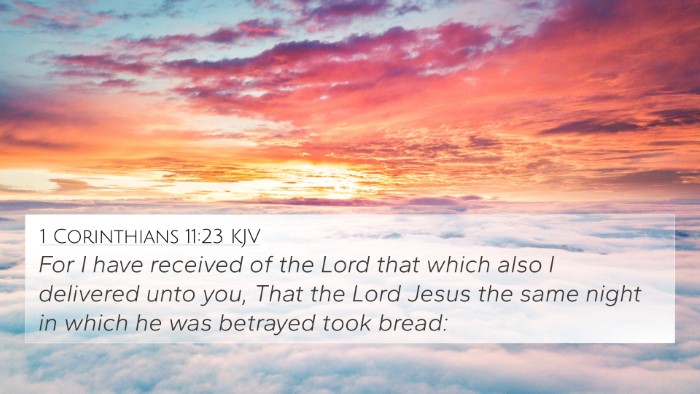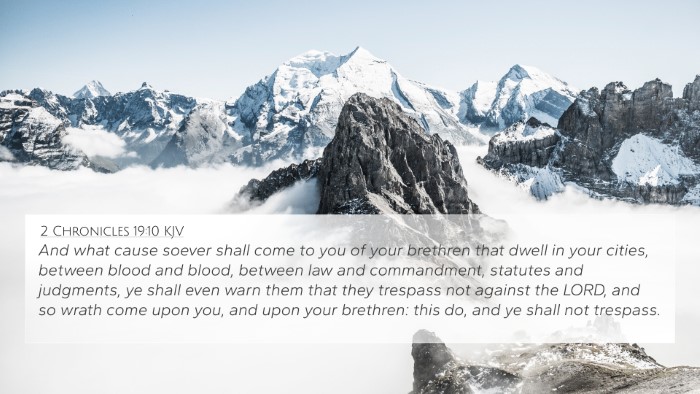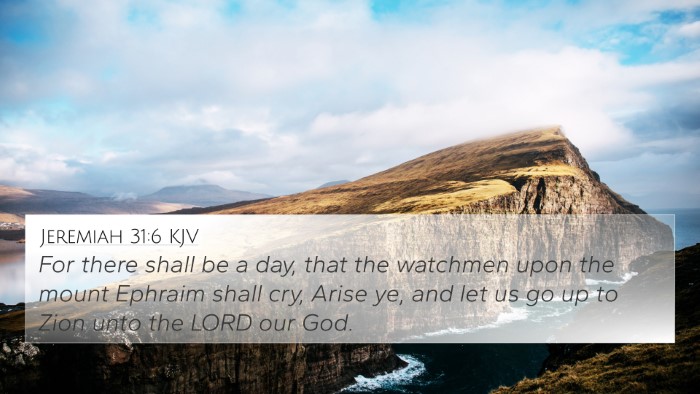Ezekiel 33:7 - Summary and Analysis
Bible Verse: "So thou, O son of man, I have set thee a watchman unto the house of Israel; therefore thou shalt hear the word at my mouth, and warn them from me." (Ezekiel 33:7)
Meaning and Interpretation
This passage is significant in understanding the prophetic role of Ezekiel as a watchman over Israel. According to Matthew Henry, Being a watchman involves the responsibility of alerting the people to impending danger, particularly spiritual peril. The 'watchman' metaphor is a recurring theme in scripture, signifying vigilance and responsibility in leadership.
Albert Barnes expounds on the weight of this responsibility. He emphasizes that the watchman must not only listen to God’s word but actively relay that message to the people. If the watchman fails to do so, he bears the consequences, and the people may perish without warning. This notion captures the essence of accountability in spiritual leadership.
Adam Clarke further illuminates that the role of the watchman is to be distinguished from mere preaching; it is a call to proactive engagement in communicating God’s warnings and guidance. As Clarke notes, the watchman has a divine appointment, and dismissing this duty poses grave implications for both the individual and the community.
Key Themes
- Divine Responsibility: The concept of being appointed by God carries both weight and honor, marking Ezekiel’s ordained role.
- Warning and Prophecy: The necessity for the watchman to warn the people signifies the importance of obedience and communication from God.
- Consequences of Inaction: Failure to deliver God’s warnings incurs judgment not just upon the community but also the watchman himself.
Bible Cross-References
This verse connects to a number of other Biblical passages that share similar themes of watchfulness and accountability. Below are several key cross-references:
- Ezekiel 3:17: God appoints Ezekiel as a watchman for the house of Israel, reinforcing the idea of responsibility.
- Isaiah 62:6: "I have set watchmen upon thy walls, O Jerusalem, which shall never hold their peace day nor night." This highlights the persistence of watchmen in their duties.
- Jeremiah 6:17: The role of watchmen who are called to warn the people to return to the paths of righteousness.
- Matthew 25:13: "Watch therefore, for you know neither the day nor the hour in which the Son of Man is coming." This New Testament echo supports the enduring call to vigilance.
- Acts 20:26-27: Paul declares that he is innocent of the blood of all men, as he has not shunned to declare the whole counsel of God.
- Hebrews 13:17: "Obey them that have the rule over you, and submit yourselves: for they watch for your souls." This verse continues the theme of spiritual leaders being watchmen.
- 1 Peter 5:2: "Feed the flock of God which is among you, taking the oversight thereof." This emphasizes diligent care and oversight as a form of watchfulness.
Understanding the Context
In the broader context of Ezekiel, this verse forms part of a series of warnings given to the Israelites in anticipation of their moral failures. As a prophet during a tumultuous period, Ezekiel’s mission was to guide and admonish his fellow Israelites, leading them back to faithfulness amidst adversity. This is an essential aspect of inter-Biblical dialogue, drawing connections between the prophetic messages throughout scripture.
Tools for Bible Cross-Referencing
Understanding Ezekiel 33:7 and its implications can be enhanced through various cross-referencing tools:
- Bible Concordance: A valuable resource for finding words and their occurrences throughout scripture.
- Cross-reference Bible Study: Engaging in studies that utilize cross-references can deepen understanding of thematic links.
- Comprehensive Bible Cross-reference Materials: Utilizing guidebooks that provide thematic connections enhances biblical literacy.
Conclusion
In Ezekiel 33:7, believers are reminded of the critical role of spiritual leaders as watchmen, charged with the duty of proclaiming God’s warnings. The connections it holds with other scripture create a robust framework for understanding the implications of being vigilant both for oneself and for the community. Through comprehensive analysis and cross-referencing with supporting verses, followers of Christ can grasp the depth of God's mandate for watchfulness and accountability.
